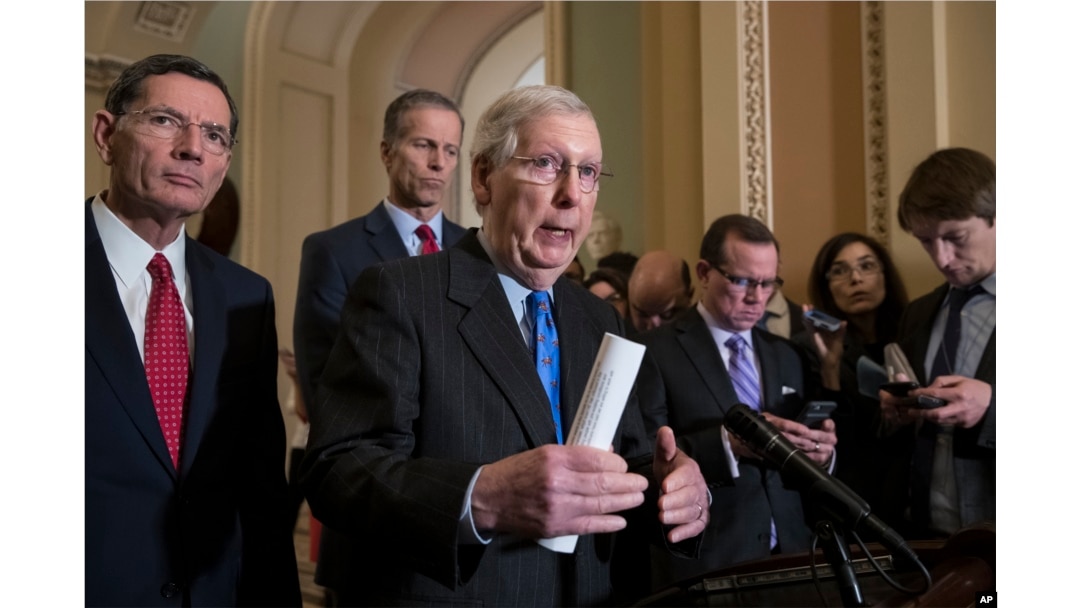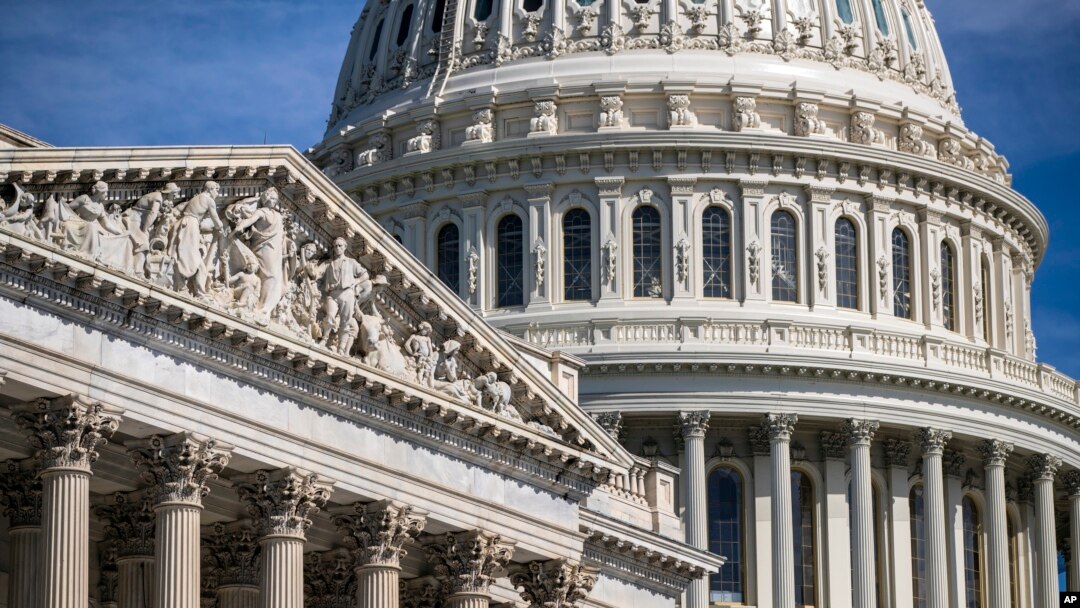The White House and Congress appeared headed Wednesday toward agreement on a stopgap spending plan to avert a partial government shutdown at midnight Friday, but it does not include $5 billion President Donald Trump wanted for construction of a wall along the U.S.-Mexico border.
The Senate approved the measure by voice vote late Wednesday. It would fund operations for one-quarter of the U.S. government until Feb. 8 when Trump and lawmakers could again face the possibility of a partial closure.
The measure now moves to the House of Representatives.

FILE - Senate Majority Leader Mitch McConnell, R-Ky., center, speaks to reporters about the possibility of a partial government shutdown, at the Capitol in Washington, Dec. 18, 2018.
Democratic leader Charles Schumer said Democrats would support the temporary spending plan, with the remainder of the U.S. government already funded through the end of next September.
Trump made a pledge during his 2016 campaign to build a border wall to thwart illegal immigration and make Mexico pay for it. The president, however, has not been able to secure U.S. taxpayer funding for it even though both houses of Congress currently are under the control of his Republican Party.
He faces an even more daunting political challenge in the new year, when Democrats, who are adamantly opposed to the wall, take control of the House of Representatives, while Republicans retain their Senate majority.
On Twitter, Trump said, "One way or the other, we will win on the Wall!"
Trump aide Kellyanne Conway told reporters that the U.S. leader would "take a look at" the stopgap funding plan, "certainly."
Trump last week said he would "proudly" own a shutdown in order to get $5 billion in funding for construction of a wall along the 3,200-kilometer border with Mexico; but, without enough votes in Congress, Trump retreated Tuesday, with the White House saying it would look for "other ways" to secure funding by trying to tap unused money from several federal agencies.
"We'll see what happens," Trump said. "It's too early to say. We need border security."
SEE ALSO: White House Cites 'Options' for Funding US Border WallDemocrats have proposed keeping 2019 funding at $1.3 billion for border security fencing and other improvements, but not specifically for the wall.
In a pair of tweets, Trump blamed opposition Democrats for the spending impasse, although some Republicans also oppose construction of the wall.
"In our Country, so much money has been poured down the drain, for so many years, but when it comes to Border Security and the Military, the Democrats fight to the death," he said.
Trump wrongly claimed that "Mexico is paying (indirectly) for the Wall" through the new U.S. trade deal with Mexico and Canada, with "far more money coming to the U.S." But the pact has yet to be ratified by Congress and has not taken effect.
Congress has approved funding for three-quarters of U.S. government operations through Sept. 30, but the remaining quarter left without a 2019 spending plan includes the Department of Homeland Security, which oversees border control operations, and the State Department handling U.S. diplomatic operations.
If a deal is not reached to avert the partial government shutdown, the affected agencies would start winding down nonessential operations Friday, with more than 800,000 federal workers furloughed or working for no pay.
FILE - House Minority Leader Nancy Pelosi of Calif., right, accompanied by Senate Minority Leader Sen. Chuck Schumer of N.Y., left, speaks to members of the media outside the West Wing of the White House in Washington, Dec. 11, 2018.
On Tuesday, McConnell proposed $1.6 billion for border fencing — money already agreed upon in a bipartisan Homeland Security bill — and an additional $1 billion Trump could use to spend on the border.
McConnell called the offer "reasonable." Democratic leaders said no.
House Democratic leader Nancy Pelosi said she and Schumer could "not support the offer they made of a billion-dollar slush fund for the president to implement his very wrong immigration policies."


